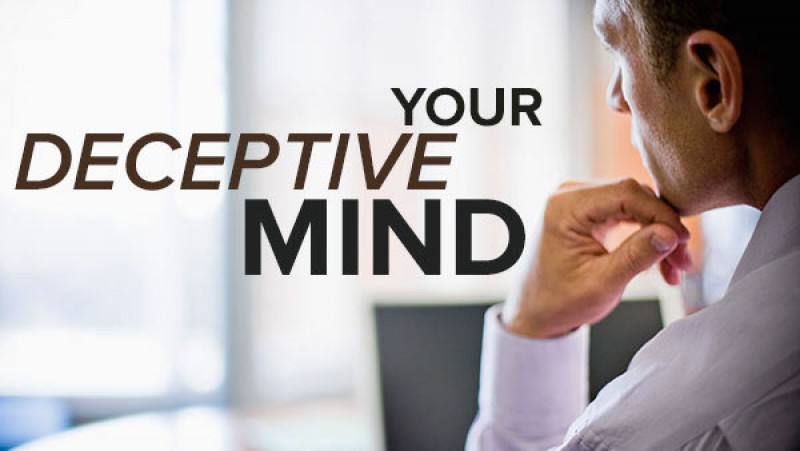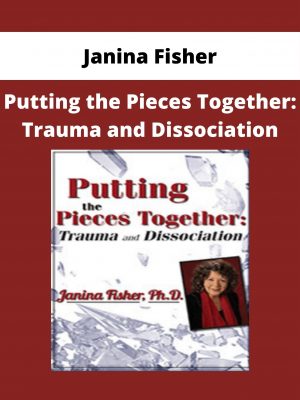Steven Novella – Your Deceptive Mind: A Scientific Guide to Critical Thinking Skills
$215 Original price was: $215.$54Current price is: $54.
Shopping Instructions:
- DISCOUNT 15% : SHOP15
- Product Delivery: Within 1 – 12 hours after purchase.
What should you think? Who should you believe? Could you be deceiving yourself? These are questions that all critical thinkers of any age must constantly ask themselves. There is no more important skill in today’s world than being able to think about, understand
Steven Novella – Your Deceptive Mind: A Scientific Guide to Critical Thinking Skills
What should you think? Who should you believe? Could you be deceiving yourself? These are questions that all critical thinkers of any age must constantly ask themselves. There is no more important skill in today’s world than being able to think about, understand, and act on information in a way that is both effective and responsible. Critical thinking transforms you from a passive member of society into an active participant in the ideas and issues of the day. It empowers you to better understand nearly every single aspect of everyday life, from health and nutrition to science and technology to philosophical and spiritual belief systems.
What’s more: At no point in human history have we had access to so much information, with such relative ease, as we do in the 21st century. Information is literally everywhere around you; in newspapers and magazines, on the radio and television, and across the Internet. But as the amount of information out there increases, so too does the amount of misinformation. So it’s more important than ever before to become a better critical thinker—someone who can analyze and construct arguments and arrive at more sound, more informed opinions. And the key to success lies in
- understanding the neuroscience behind how our thinking works—and goes wrong;
- mastering the fundamental skills behind logic, reasoning, and argumentation;
- avoiding common pitfalls and errors in thinking, such as logical fallacies and biases; and
- knowing how to distinguish good science from pseudoscience.
All this and more you can find in the 24 rewarding lectures of Your Deceptive Mind: A Scientific Guide to Critical Thinking Skills. Dr. Steven Novella of the Yale School of Medicine—an academic neurologist, award-winning instructor, and public educator—equips you with the knowledge and techniques you need to become a savvier, sharper critical thinker in your professional and personal life. By immersing yourself in the science of cognitive biases and critical thinking, and by learning how to think about thinking (a practice known as metacognition), you’ll gain concrete lessons for doing so more critically, more intelligently, and more successfully than ever before.
Explore the Inner Workings of Critical Thinking
Our brains, according to Dr. Novella, are our greatest strength as critical thinkers. But they can also be the source of many weaknesses and impairments in critical thought. In Your Deceptive Mind, you’ll take a closer look at the neuroscientific details of critical thinking and how the (often unfamiliar) ways in which our brains are hardwired can distract and prevent us from getting to the truth of a particular matter:
- The neuroscience of critical thinking: Approach the act of thinking not as some abstract concept but as an action rooted deep within your brain. In clear, easy-to-understand language, Dr. Novella takes you deep inside this powerful organ to examine how you form beliefs, perceive your surroundings, and remember events.
- Biases and problems in critical thinking: The key to success as a critical thinker lies in understanding the range of biases and problems that can stand in the way of reason and truth. You’ll encounter—and learn how to deftly sidestep—fallacies such as retrofitting of evidence, collective wish fulfillment, reliance on “factoids,”and ad hominem arguments.
- Science and pseudoscience: Knowing how to separate science (the foundation of critical thought) from pseudoscience is of the utmost importance to any well-rounded critical thinker. Here, you’ll investigate common examples of pseudoscience that surround us every day—from the denial of established evidence to the belief in grand conspiracies.
Along the way, you’ll sample a range of illuminating case studies, experiments, and observations from nutrition, science, technology, mass culture, and even politics; all of which vividly illustrate the core components of (and threats to) responsible critical thinking. These include
- how purported sightings of UFOs, ghosts, and Bigfoot are, in reality, plagued by a host of cognitive flaws that also reveal secrets about how we all make sense of unexplainable events;
- how functional MRI scans have demonstrated that different parts of our brain work together to construct an aggregate consciousness and sense of reality;
- how a 1938 radio broadcast of The War of the Worlds so easily incited mass hysteria in listeners and actually convinced them that an alien invasion was at hand; and
- how reactions to the assassination of President John F. Kennedy illustrate the inherent tendency in human beings to fall into the cognitive trap of grand conspiracies.
Unpack the Critical Thinker’s Toolbox
Throughout Your Deceptive Mind, Professor Novella provides you with a critical thinker’s toolbox that you can use to better assess the quality of information or to make a more informed decision.
- The smaller the scientific study, the greater you should be concerned about the potential for statistical noise. Larger scientific studies are often needed for the random effects to average out so that a more reliable answer can be arrived at.
- While it’s important to remember that emotions have an influence on an individual’s thought processes, it’s dangerous to completely deny them when analyzing information or trying to make an informed decision.
- Learn to be comfortable with the uncertainty of the world. The truth is that there is no single guarantee of legitimacy when it comes to scientific information, only solid indicators of legitimacy.
- Be particularly on guard when dealing with controversial subjects frequently covered in the media. The more controversial a topic, the greater the chances are that information about that topic is skewed in one direction or another.
These invaluable tips, techniques, and strategies are only a few of what you’ll find in these lectures.
And that’s not all. Your Deceptive Mind’s greatest strength lies in Professor Novella’s delivery and engagement with the material. In addition to being a master teacher, he is an expert on critical thinking and its intersection with science. President and cofounder of the New England Skeptical Society and the host of its award-winning show, The Skeptic’s Guide to the Universe, Professor Novella has dedicated himself to increasing the public’s ability to use critical thinking skills to better navigate the mass of information (and misinformation) in today’s highly mediated world.
And the world is only going to get more and more saturated with information. So take the initiative and become better prepared to make sense of it all with this intriguing and rewarding course. While these lectures can’t read the news or make decisions for you, they’ll undoubtedly give you the concrete knowledge for doing so more intelligently.
Read more: http://archive.is/SKYvp
Related products
Other Courses
Other Courses
Other Courses
Other Courses











